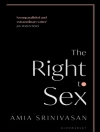Essays on the complexity of multilingualism in medieval England.
Professor Jocelyn Wogan-Browne’s scholarship on the French of England – a term she indeed coined for the mix of linguistic, cultural, and political elements unique to the pluri-lingual situation of medieval England – is of immenseimportance to the field. The essays in this volume extend, honour and complement her path-breaking work. They consider exchanges between England and other parts of Britain, analysing how communication was effected where languagesdiffered, and probe cross-Channel relations from a new perspective. They also examine the play of features within single manuscripts, and with manuscripts in conversation with each other. And they discuss the continuing reach ofthe French of England beyond the Middle Ages: in particular, how it became newly relevant to discussions of language and nationalism in later centuries. Whether looking at primary sources such as letters and official documents, orat creative literature, both religious and secular, the contributions here offer fruitful and exciting approaches to understanding what the French of England can tell us about medieval Britain and the European world beyond.
Thelma Fenster is Professor Emerita of French and Medieval Studies, Fordham University; Carolyn Collette is Professor of English Language and Literature at Mount Holyoke College.
Contributors: Christopher Baswell, Emma Campbell, Paul Cohen, Carolyn Collette, Thelma Fenster, Robert Hanning, Richard Ingham, Maryanne Kowaleski, Serge Lusignan, Thomas O’Donnell, W. Mark Ormrod, Monika Otter, Felicity Riddy, Delbert Russell, Fiona Somerset, +Robert M. Stein, Andrew Taylor, Nicholas Watson, R.F. Yeager
Table of Content
Foreword: ‘The Light I Never Left Behind’: Jocelyn Wogan-Browne – Felicity Riddy
Introduction: Recognizing the French of Medieval England
The Gloss to Philippe de Thaon’s
Comput and the French of England’s Beginnings – Thomas O’Donnell
The Scandals of Medieval Translation: Thinking Difference in Francophone Texts and Manuscripts – Emma Campbell
Contrafacture and Translation: The Prisoner’s Lament – Monika C Otter
Complaining about the King in French in Thomas Wright’s
Political Songs of England – Fiona Somerset
The
Chanson d’Aspremont in Bodmer 11 and Plantagenet Propaganda – Andrew Taylor
The Use of Anglo-Norman in Day to Day Communication during the Anglo-Scottish Wars [1295-1314] – Serge Lusignan
Middle English Borrowing from French: Nouns and Verbs of Interpersonal Cognition in the
Early South English Legendary – Richard Ingham
William Langland Reads Robert Grosseteste – Nicholas Watson
Disability Networks in the Campsey Manuscript – Christopher Baswell
English Women and Their French Books: Teaching about the Jews in Medieval England – Thelma Fenster
French Residents in England at the Start of the Hundred Years War: Learning English, Speaking English and Becoming English in 1346 – W. Mark Ormrod
French Immigrants and the French Language in Late Medieval England – Maryanne Kowaleski
Fashioning a Useable Linguistic Past: The French of Medieval England and the Invention of a National Vernacular in Early Modern France – Paul Cohen
Admiring Ambivalence: On Paul Meyer’s Anglo-Norman Scholarship – Delbert W. Russell
Twenty-First Century Gower: The Theology of Marriage in John Gower’s
Traitié and the Turn toward French – Robert F. Yeager
Royaumes sans frontières: the Place of England in the Long Twelfth Century – Robert Stein
Afterword – Robert W Hanning
Bibliography – Felicity Riddy
Index
Bibliography of the Writings of Jocelyn Wogan-Browne
About the author
The late W. MARK ORMROD was Professor Emeritus of History at the University of York; he published extensively on later medieval history.












